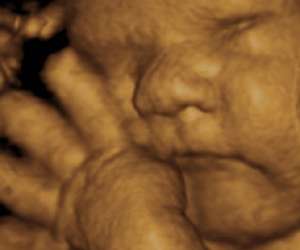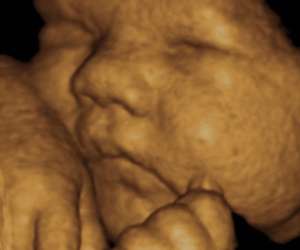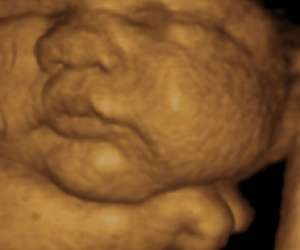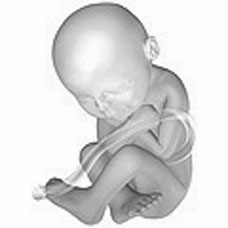
You are 38 Weeks and 5 Days Pregnant

When does labor actually start? If it's your first pregnancy, it can be difficult to recognize the signs that the baby is on his way. Some women get lower back pain that is minor before becoming painful. You might notice a bloody show (see The "bloody show"), which can happen well before true labor actually starts. Your water may break as the sac containing the amniotic fluid bursts open. Even if your water breaking is not accompanied by contractions you should still inform your doctor of what is happening.
Finally, the most obvious sign is contractions: these painful tightenings of your uterus will increase in intensity and become more regular as labor progresses. Contractions are associated with the dilation and shortening of your cervix, so your doctor will examine you to see how far you've progressed (see Abdominal and vaginal examinations).
If you think that you have gone into labor, stay calm and telephone your doctor and listen to her advice. Inform her of your symptoms and, especially, describe your contractions. If you are having contractions every 5 minutes that last for one minute (time them), and they're so uncomfortable that you're forced to stop what you're doing, you should think about going to hospital.
Fetal monitoring
If there are no complications or reasons for concern, your baby's heartbeat will usually be monitored using a handheld device much like the one used during your prenatal appointments. You may be hooked up throughout the entire labor and birth, or your doctor may listen to your baby's heartbeat every 15 to 30 minutes, which means that you can move around as much as you like in between these checks.
If you've had complications in pregnancy, or problems develop during labor, the doctor may monitor the heartbeat using a CTG (see Monitoring During Labor).
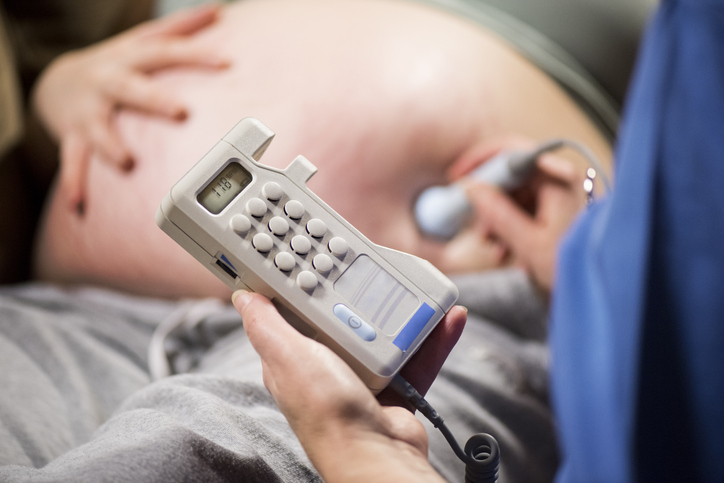
Ask A... Doctor
In most maternity units, there's a degree of flexibility as to how long you remain in hospital. If you want to stay for as brief a period as possible, talk to your doctor. It depends on many variables, but federal law says insurance companies can't force you to check out before 48 hours for a vaginal delivery, or 96 hours for a cesarean. It is recommended that a healthy newborn stay in the hospital for at least 48 hours. How long you stay in hospital will largely depend on your type of delivery. If you have a vaginal birth, you should be able to go home after six hours, but a cesarean may mean you need to stay in for about three days. If your baby is born early, is unwell, or is struggling to feed or maintain his temperature, you'll be advised to stay in the hospital. If your baby has to remain in the hospital for a long period, you would have to go home and visit him in the neonatal intensive care unit (see Neonatal Intensive Care Babies).

Pregnancy Day by Day
By Consultant Editor, Paula Amato, MDOriginal source: Pregnancy Day by Day.
Copyright © 2008 Dorling Kindersley Limited.
Purchase on Amazon

